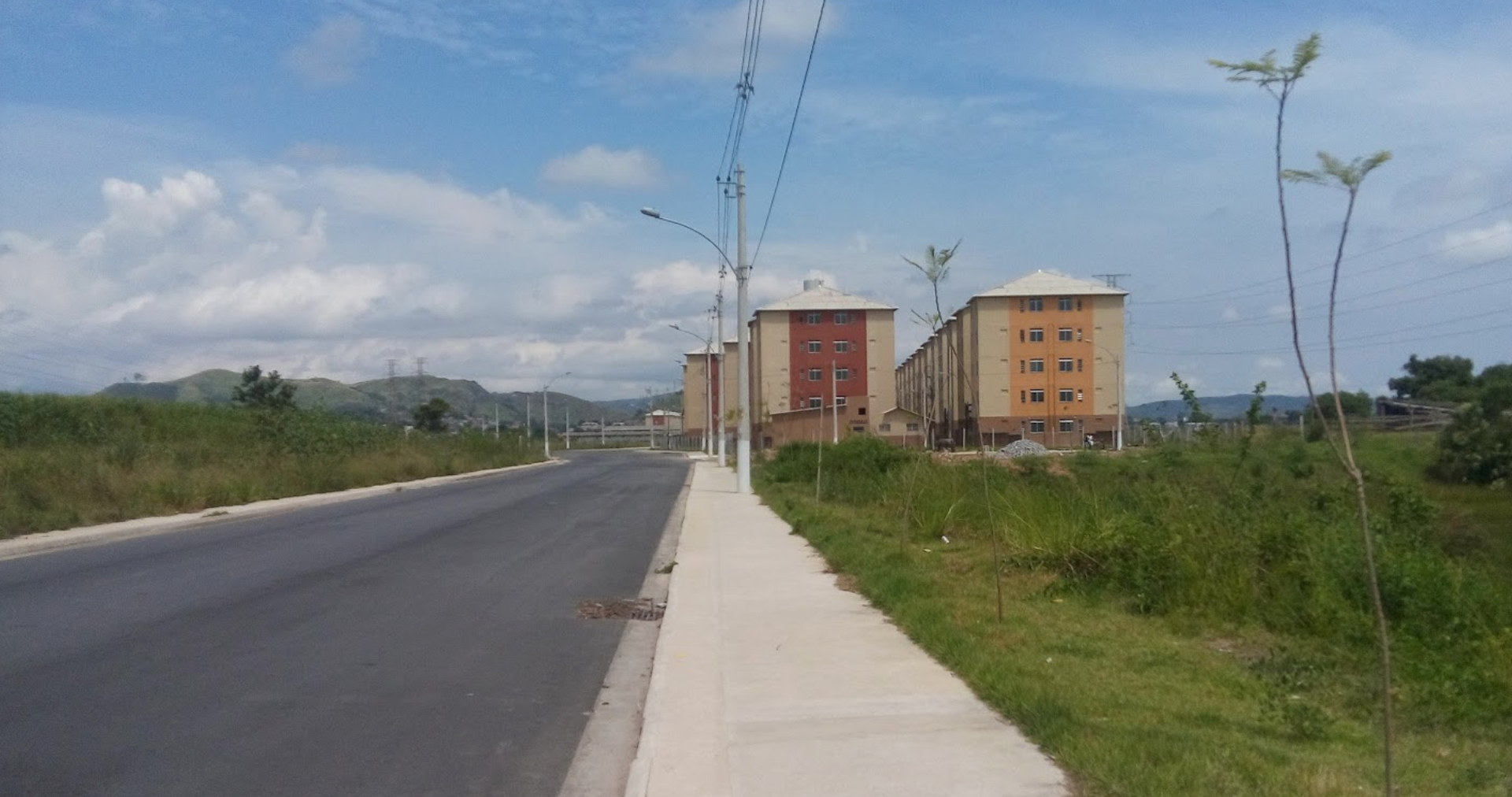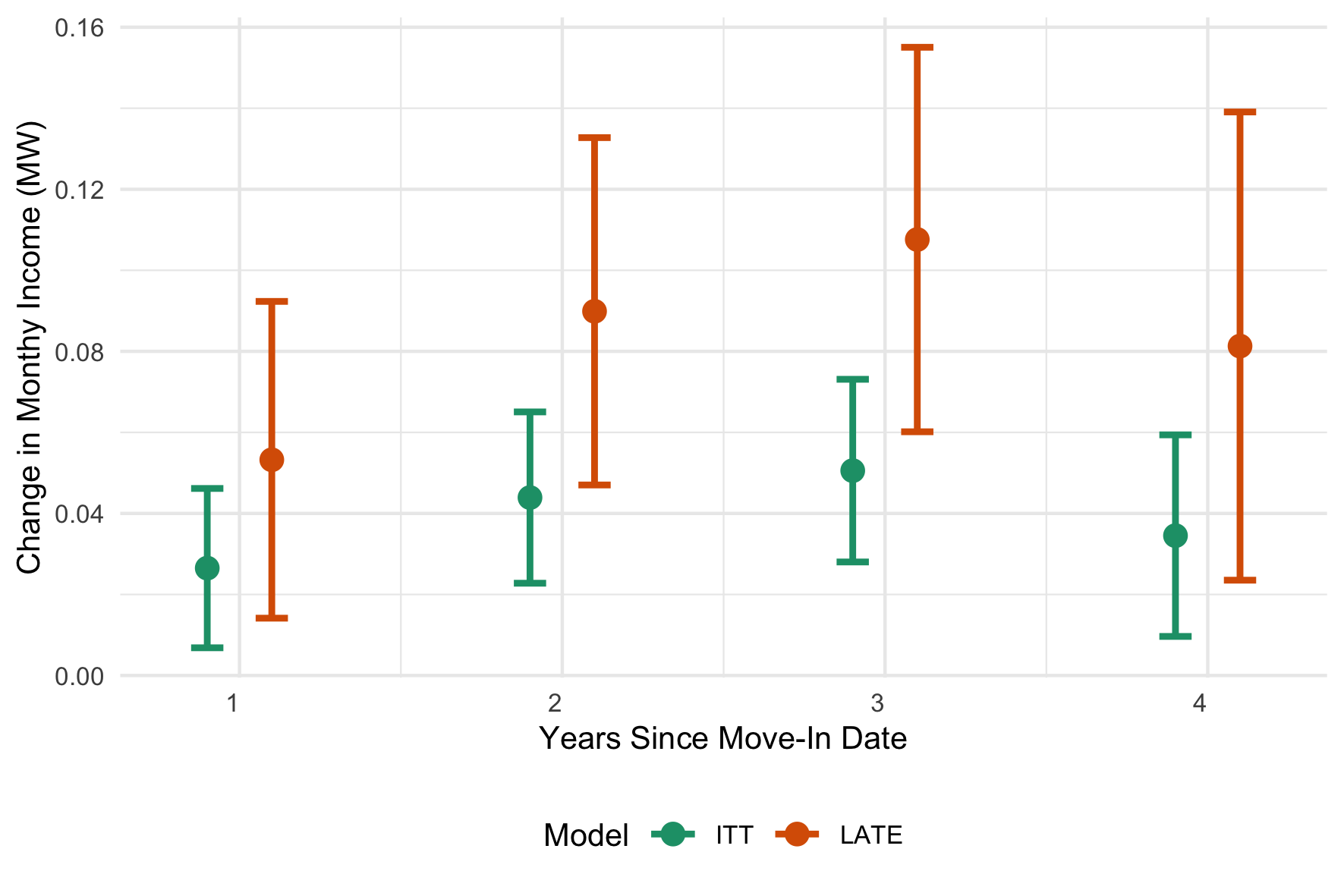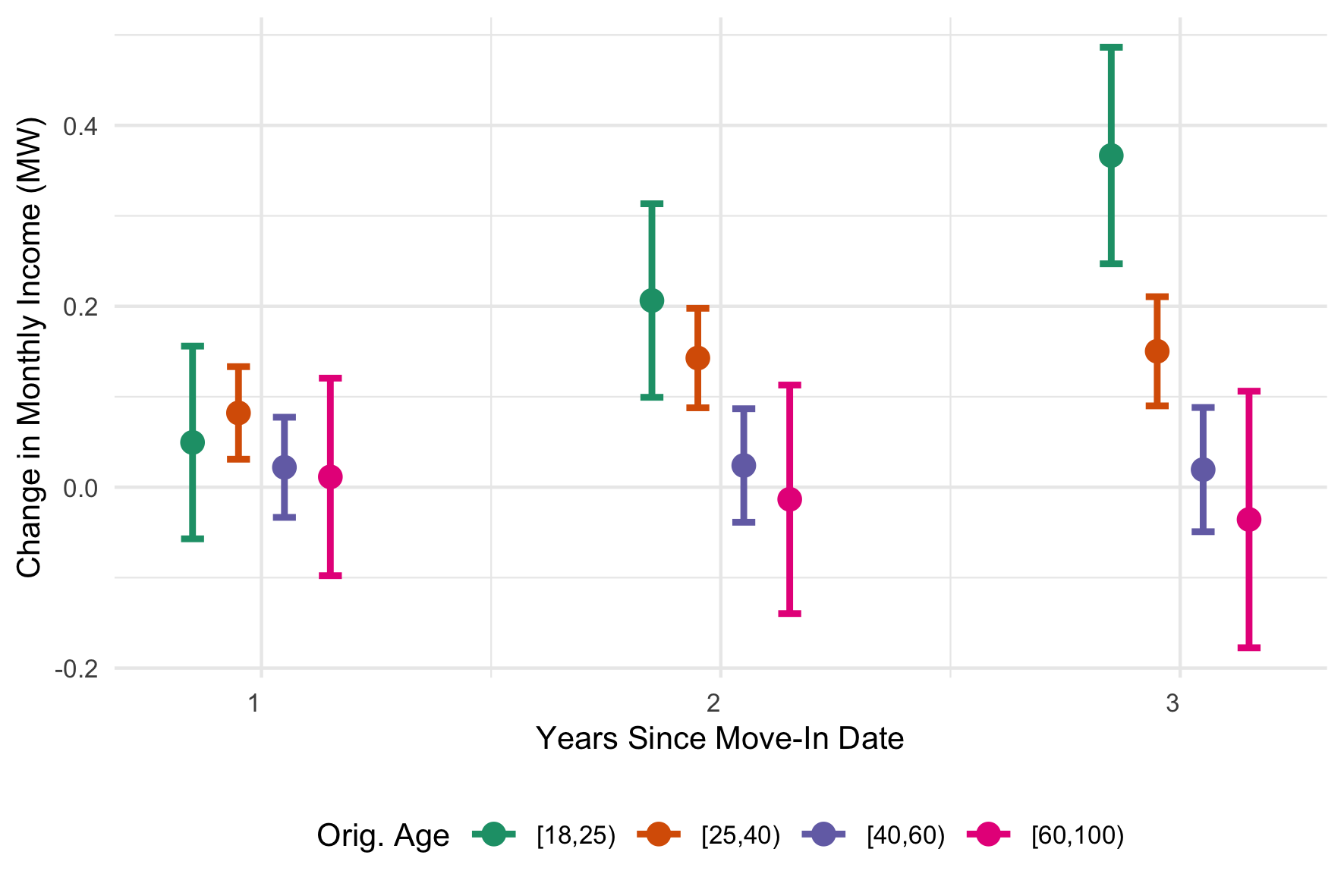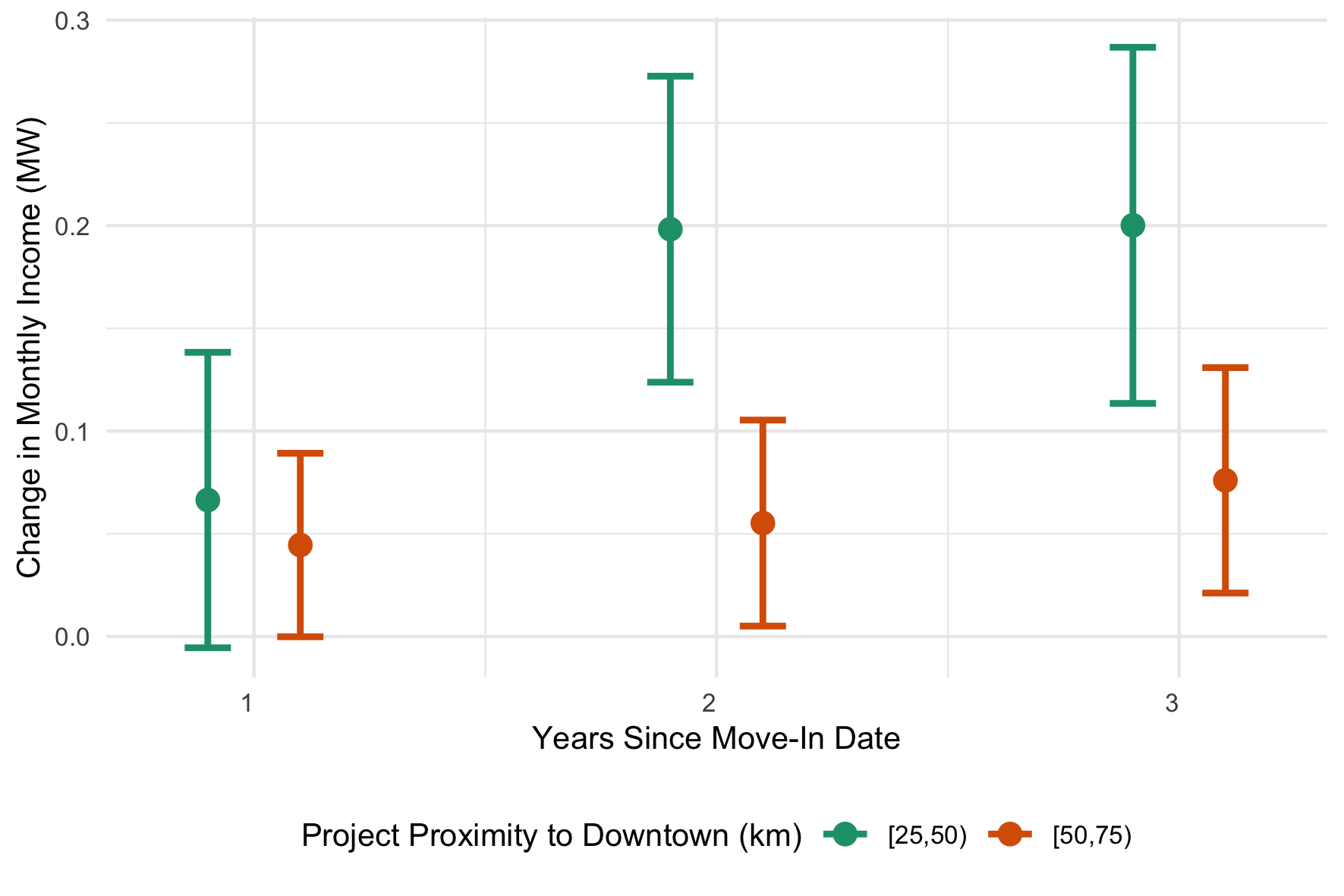Winning the Housing Lottery in Rio de Janeiro - Curse or Cure?

In the wake of the 2008 financial crisis, the Brazilian federal government launched My House, My Life (PMCMV), an ambitious program to build subsidized housing for over five million low-income families. While the program has been praised for its scale, early evidence suggests that its beneficiaries may be struggling. Complaints of high utility bills, militia exploitation and intolerable commutes have surfaced alongside studies showing that beneficiaries may be unable to hold a formal job upon moving.
In Rio de Janeiro, many housing units are awarded via random lottery, creating a rare opportunity to infer the causal impacts of the program. In this thesis, I track the employment activity and earnings of over 28,000 participants, half of whom were awarded 90%-subsidized units, between 2011 and 2017. Contradicting most previous studies, I find that moving to a PMCMV unit increased earnings by 13% and the likelihood of employment by 2% after four years.
Average Effect of Moving on Income

Since beneficiaries generally sacrifice both safety and access to jobs in moving, other factors, such as residential stability or the need to cover higher living costs, may explain the increase in labor market activity.
Outcomes vary significantly among types of participants and project locations, revealing opportunities for the government to target follow-up assistance and improve project locations.
Conditional Effect of Moving on Income
 |
 |
The types of lottery winners most likely to move differ from those who are most likely to see their formal incomes increase.
Factors Affecting Odds of Moving

Men, non-whites, favela residents and the college educated are less likely to move, even though they are at least as likely to benefit. Furthermore, participants are more likely to move to projects far from downtown even though such projects generate weaker income benefits. Participants also revealed a preference for nearby PMCMV units, but those who moved far experienced the same income benefits. These findings indicate that lottery winners are either misinformed about how moving might impact their potential earnings or make their decision to move based on other factors.
